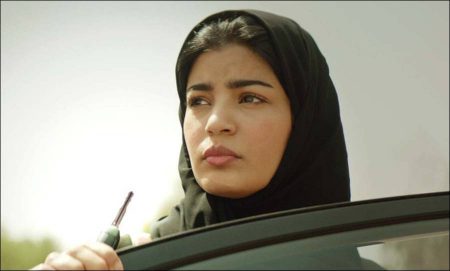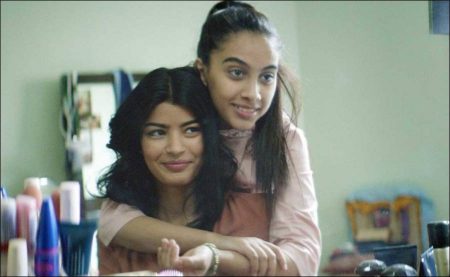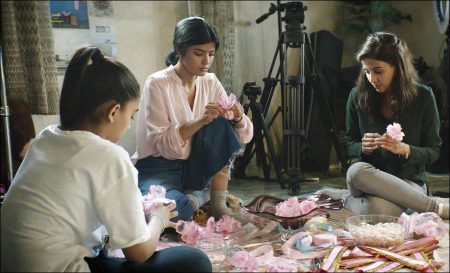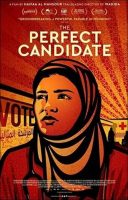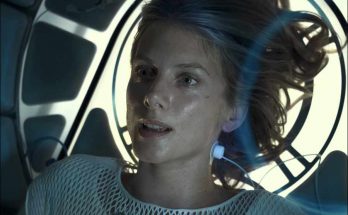The Perfect Candidate Movie Storyline. When Maryam (Mila Al Zahrani), a hardworking young doctor in a small-town clinic, is prevented from flying to Dubai for a conference without a male guardian’s approval, she seeks help from a politically connected cousin but inadvertently registers as a candidate for the municipal council. Maryam sees the election as a way to fix the muddy road in front of her clinic, but her campaign slowly garners broader appeal.
The Perfect Candidate is a 2019 Saudi Arabian drama film directed by Haifaa al-Mansour. It was selected to compete for the Golden Lion at the 76th Venice International Film Festival. It was also selected as the Saudi Arabian entry for the Best International Feature Film at the 92nd Academy Awards, but it was not nominated.
Writing for The Hollywood Reporter, Deborah Young called the film a “simplistic feminist tale with an irresistible heroine” and said: “The Perfect Candidate offers a candid view on Saudi Arabian society that will pique the curiosity of Western audiences.”
Film Review for The Perfect Candidate
A feel-good Middle East tale — a fable, really — about a determined, courageous young woman who establishes her own identity in one of the most repressive male-oriented societies in the world, Haifaa Al Mansour’s The Perfect Candidate offers a candid view on Saudi Arabian society that will pique the curiosity of Western audiences. Its humorous viewpoint on a bored, spoilt society divided by gender puts this Saudi Arabia-Germany co-production in a special class of its own that could capture the fancy of non-festival viewers.
The Match Factory release marks Al Mansour’s welcome return to her native country after her lushly romantic biopic Mary Shelley and the Netflix rom-com Nappily Ever After. You could almost call it a grown-up version of her first feature Wadjda, the saga of a rebellious little Saudi girl who enters a Qur’an reading contest to win a bicycle, which bowed at the Venice International Film Festival in 2012.
The new film’s slot in Venice competition will inevitably expose its rather basic filmmaking style and narrative to critical scrutiny. But what The Perfect Candidate lacks in sophistication it makes up for in intuition, entwining the longtime taboos of music (especially the female voice) and women’s active participation in political life in a positive storyline.
Its ace in the hole, however, is actress Mila Alzahrani as a young, heavily veiled doctor who releases her inner firebrand when she finds an issue worth fighting for. While Wadjda opened with a 10-year-old girl riding a bike, The Perfect Candidate shows Maryam (Alzahrani) exercising her newly acquired rights and driving her car through a massive cloud of dust. (King Salman lifted the ban on women drivers in 2018.) Wearing not only a black veil but a face mask called a niqab that allows only her eyes to show, she is a disconcerting sight behind the wheel. There’s even more surprise when she confidently strides into a roadside clinic, where she is one of the leading doctors.
Her calm authority is soon challenged by an old man brought in by his grandson after a car accident: He refuses to be treated by a woman. His rude sexism becomes a running gag in the film, which not surprisingly undergoes a reversal when male nurses botch the diagnosis and he is forced to be operated on by Maryam. Though predictable, like many scenes in the film, his about-face still pushes the buttons in a moving coda.
In contrast to her professional success, Maryam’s home life unfolds behind gates and courtyards. For one thing, she and her sisters Selma and Sara take off their veils (something that can never happen in an Iranian film), revealing modern faces and long hair to the audience. Their mother, who raised controversy in her day as a singer with a beautiful voice, has recently died, leaving the three girls and their musician dad (Khalid Abduirhim) to fend for themselves and pursue their own paths.
The wry father, mild-mannered and unexpected, is a highly accomplished oud player, and his story offers a telling counterpoint to Maryam’s. It is Ramadam, and as the Eid holiday approaches, he takes off on a tour with his band of traditional local musicians. The big news is that the authorities are permitting public concerts for the first time, despite the opposition of some “radicals” who don’t like music. The concerts that the old men play at are poorly attended and heavily guarded by the police. But the very fact they are allowed to take place at all is an event the father has been waiting for “for 20 years.”
While Dad is away, Maryam plans to attend a medical conference in Dubai that could change her professional future. But at the airport, an expired travel permit raises an insurmountable obstacle and it seems that she will spend the rest of the film trying to overcome bureaucratic sand traps. Fortunately, the story goes in a very different direction when a patronizing bureaucrat induces her to fill out a form requesting candidacy at the next municipal elections. Women candidates are welcome; however, she is warned, it is going to be very tough for one to win.
This turns out to be a huge understatement. But it dawns on her that she has one burning issue to campaign for: paving the muddy dirt road in front of the hospital so patients can be brought into the ER without risking life and limb. With the proud help of her photographer sister Selma, played by the luminous Dhay, and none from her primly religious sis Sara, Maryam decides to campaign for election. Some of the movie’s finest comedy comes out of the untidy fund-raising parties they organize, full of music and fashion but low on potential voters. Their ingenuity in promoting Maryam is sorely tested when she appears on TV, for the first time without a niqab covering her face, and later at an all-male rally, where she has to address her “supporters” via a video screen.
Very much in line with Al Mansour’s bold collection of heroines, newcomer Mila Alzahrani lends Maryam a snappy hands-on idealism that is a delight to watch blossom, whether it’s a matter of marching to attach an unplugged cable for a technician or dressing down a disrespectful audience of uppity men. Her fearless candidacy for office in an all-male world may be a cinematic fantasy, but it does open an interesting door on an evolving society.
The weak spot is the film’s plain, non-descript look marked by utterly basic shooting and lighting that often could pass as hurriedly made TV. Only the music, which plays such an important role in the narrative, lifts the spirits and Volker Bertelmann’s score blends cunningly with lilting, traditional love songs sung by a variety of excellent performers.
The Perfect Candidate (2021)
Directed by: Haifaa Al Mansour
Starring: Mila Alzahrani, Dae Al Hilali, Dhay, Nourah Al Alwad, Khalid Abduirhim, Tareq Al Khaldi, Khadeeja Mua’th, Abdullah Ateeg, Ahmad Alsulaimy, Hamad Al Mazaini, Reema Mohammed
Screenplay by: Haifaa Al Mansour, Brad Niemann
Production Design by: Olivier Meidinger
Cinematography by: Patrick Orth
Film Editing by: Andreas Wodraschke
Costume Design by: Heike Fademrecht
Set Decoration by: Marie-Catherine Theiler
Art Direction by: Abdulrahman Abu Al Faraj, Khalid Gaith, Tamara Kalo
Music by: Volker Bertelmann
MPAA Rating: None.
Distributed by: Music Box Films
Release Date: May 14, 2021
Views: 52
